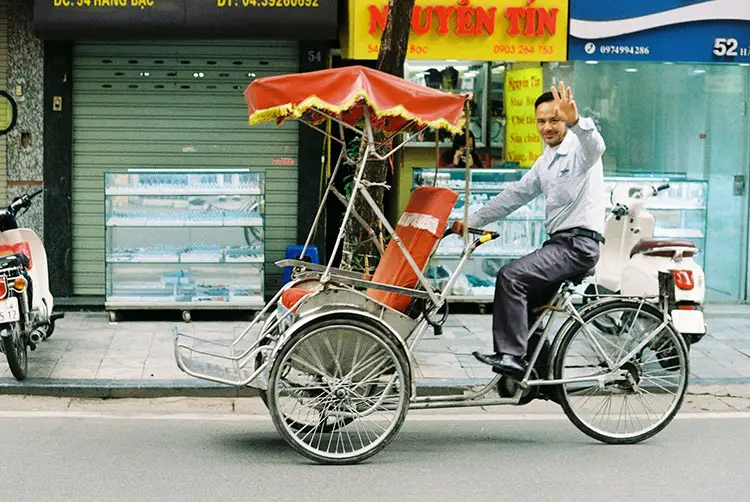Expats looking to retire in the Far East inevitably find themselves looking at Thailand. But what does elder care in Thailand look like? It’s something to consider if you are planning to spend the rest of your days living there.
Thailand has something for everyone. Don’t like the noise from the city? Maybe try out the beachside living. Do you like the bustling noise of the city? Then there’s plenty of apartments available with a great view of Thailand’s beautiful mountains and lush flora and fauna. Do you like riding around on a three-wheeled motorcycle? Anyone? If you aren’t outdoorsy, the Land of Smiles’ interior is no less impressive, offering residences with a mixture of traditional and ultra-modern designs for every budget.
Thailand Residency Requirements for Expats
If you are looking at becoming a Thailand citizen, there are several ways to do this. One of these options is naturalization, which requires that you either have a Thailandese spouse. You’ll need to prove that you can speak, write, and understand the basic Thai language and sing the Thai National Anthem Sanserm Phra Baramee.
Suppose the option of naturalization is not available because you have no other Tai family members. In that case, you must either apply for a work permit and hold a Thailand Work Visa and Work Permit for at least three years, earning a minimum monthly salary of 80,000 Baht for at least two years. You can also obtain a visa if you have expertise in any field with at least a BA degree and have been previously employed in a position you have held for at least three years.
Thailand has a special retirement visa if any seniors are looking to remain in Thailand long term, renewed every year. The requirements for this visa are being over the age of 50 and meeting the financial stipulation. You must show that you have a sum of 800,000 Baht ($26,000) in a Thai bank account for at least two months before your application or have a monthly income of 65,000 baht. At the current exchange rate, that’s less than $2,200 per month.
Cost of Living in Thailand
The cost of living in Thailand is around 30-40 percent cheaper than the United States when utilities, groceries, and rent are factored in. Most expats agree that you can live in Thailand with a $1500 monthly budget. If you want to be a little more comfortable, $2000 per month is recommended. You’ll need less if you live outside the city.
Healthcare for Expats
Overall, healthcare in Thailand is pretty solid. There are 927 government hospitals, 363 private hospitals, 9768 government health centers, plus 25,615 private clinics. All these establishments provide 99.5 percent of health protection coverage for 68 million Thai citizens who have a decent life expectancy of 77 years. However, these services may be lacking in rural areas as the medical institutes in the area are underfunded.
If you aren’t a Thai citizen, there’s no need to worry. As long as you have a work permit or a retirement visa, you are eligible for free Thai healthcare. However, most expats opt for treatment at private establishments, as these provide better and faster treatment.
Read our article on Medicare for Expats to learn more about Medicare coverage overseas.
Transportation
A few Tai transportation methods are ingenious. One of these vehicles is the Tuk Tuks, a three-wheeled transport method seen primarily in Southeast Asia. Although Tuk Tuks can be a little expensive, it’s definitely a memorable ride, and well, let’s say the better Thai you speak, the less of a chance of getting taken for a ride.
Another interesting transportation method is the Songthaew. Essentially, it’s a pick-up truck with two rows of seats in the back for people to ride. If you don’t mind having any personal space while you travel, a motorcycle taxi might suit you. These are taxis, but it’s probably not the best idea to hitch a ride on them if it’s raining!
Suppose you want something a bit more relaxed and less adventurous. In that case, you can still ride in your standard taxis, the subway alongside the Bangkok BTS Skytrain, an aboveground railway system that stops at many typical tourist locations and attractions.
Language
Around 27 percent of the Thai population can speak some English, so getting around without any Thai under your belt could be a problem. Thai language is historically known as Siamese and shares tonal and analytical characteristics with Vietnamese and Chinese, which unfortunately makes it a bit difficult to pick up and learn as it doesn’t share many traits with the English language.
Elder Care
There are fewer dedicated elder care facilities in Thailand than in Western countries because, in Thailandese’s culture, Thai elders atypically remain at home in family members’ care.
However, the long-term care facilities that have been established in the country cater specifically to the ex-pat population. Several nursing homes that greatly resemble 5-star hotels are British or Swiss run and cater to those who have dementia.
What might interest other aspiring expats is examining elder care in Vietnam.
Thailand’s Expat Population
Thailand is a decent place to settle down with a retirement visa. Its culture is generally accepting of foreigners, as long as respect toward them is maintained. For example, dressing informally is okay in most situations but wearing revealing clothing is disrespectful. Thus, many expats decide that Thailand will be their best choice of action, as the low cost of living and the caring locals makes for a pretty peaceful life.
According to a census from 2010, there were 2,581,141 people of foreign origins. Only about 68,300 of these foreigners were over the age of 50. However, over the following few years, this number increased by nearly nine percent, and in the year 2018, more than 80,000 retirement visas were issued.
Climate
Thailand has a tropical climate. It’s generally pretty hot (30℃/86℉) until October when it starts to rain. The temperature remains hot and humid during the monsoon season, and then the cycle repeats in December. You’ll find vegetation is lush and green all year.
Elder Care in Thailand Summary
If you genuinely are looking into settling down for good, Thailand might be the right choice. Healthcare is free for most residents, and living costs are relatively low compared to the United States. Acclimating to the culture shouldn’t be a problem, as the Tai are welcoming of foreigners. Residency can be reasonably straightforward to obtain, although naturalization is best.
Need further reading? We recommend these titles:
- DK Eyewitness Thailand (Travel Guide)
- Fodor’s Essential Thailand: with Cambodia & Laos
- Frommer’s Thailand (Complete Guides)
- Thailand – Culture Smart! The Essential Guide to Customs & Culture
So what are you waiting for? Hop in that Tuk Tuk for the adventure of a lifetime!


